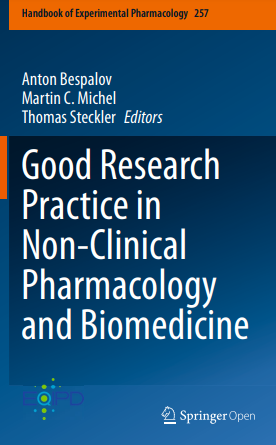Good Research Practice in Non-Clinical Pharmacology and Biomedicine
Editorial: Springer Nature
Licencia: Creative Commons (by)
Autor(es): Bespalov, Anton; [et al.]
Pharmacologists and other experimental life scientists study samples to infer
conclusions about how a molecule, cell, organ, and/or organism work in health
and disease and how this can be altered by drugs. The concept of inference implies
that whatever is reported based on the sample under investigation is representative
for the molecule, cell, organ, or organism under investigation in general. However,
this generalizability requires that two fundamental conditions are met: First, what is
being reported must be a true representation of what has been found. This sounds
trivial, but if data are selected, e.g., by unexplained removal of outliers or reporting is
biased by focusing on the findings in support of a hypothesis, reported data become a
biased rather than a true representation of what has been found. Second, what has
been found must be robust, i.e., other investigators doing a very similar experiment
should come up with similar findings. This requires a complete reporting of what
exactly has been done. It also requires that biases at the level of sampling, measuring,
and analyzing are reduced as much as feasible
[Cham: 2020]
Compartir:
Una vez que el usuario haya visto al menos un documento, este fragmento será visible.


